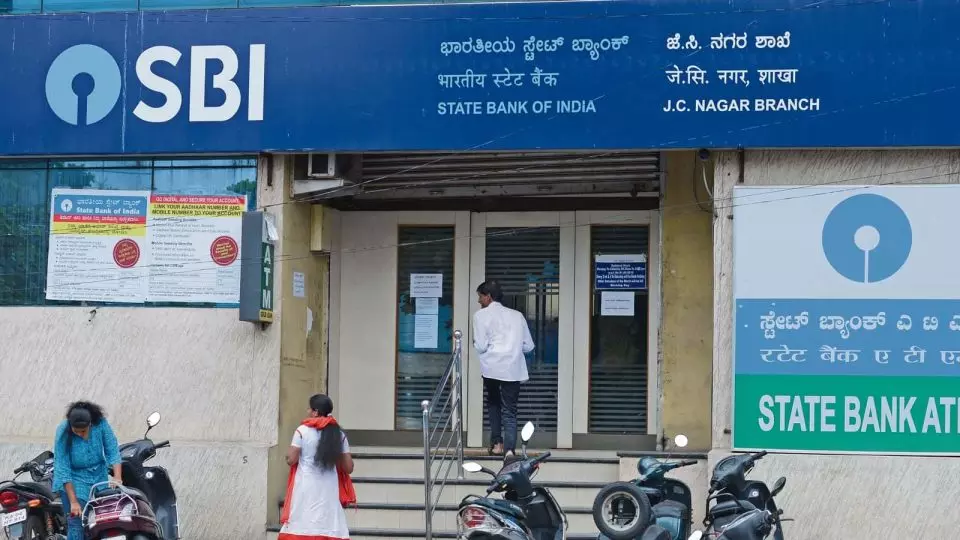
RBI penalty on SBI, Indian Bank, others: Who pays the price finally?
Passive shareholders bear the cost; it would be better if penalty is imposed on bank functionaries, the wrongdoers

The Reserve Bank of India recently imposed a penalty of ₹1.3 crore on the State Bank of India and ₹1.62 crore on Indian Bank for non-compliance with guidelines on ‘Loans and Advances – Statutory and Other Restrictions’.
SBI is the oldest government-owned bank in India. Its origins can be traced back to the Bank of Calcutta, which was founded in 1806. An Act was passed in Parliament in May 1955 and the State Bank of India was constituted on July 1, 1955. Indian Bank has been in existence since 1907. It is disturbing to know that banks like SBI or Indian Bank have not followed RBI guidelines.
But, of late, we see that now and then, the RBI imposes penalties on various banks and other financial institutions. One fails to understand the rationale behind imposing such penalties on an ongoing basis as if it is a routine function.
The following table provides the details of banks and financial institutions penalised in September 2023:
The discrepancies (that warranted imposition of penalties) found out by RBI vary. Following are some of the discrepancies pointed out by RBI:
- Non-compliance with the directions issued by RBI on ‘Loans and advances to directors, relatives and firms/concerns in which they are interested’.
- Non-compliance with certain directions issued by RBI on ‘Loans and Advances – Statutory and Other Restrictions’ and ‘Guidelines on Management of Intra-Group Transactions and Exposures’.
- Non-compliance with certain directions issued by RBI on ‘Know Your Customer Directions 2016’.
- Non-compliance with certain directions issued by RBI on ‘Interest Rate on Deposits Directions 2016’.
Section 46 of the Banking Regulation Act 1949 deals with the penalties that can be imposed by the RBI. Section 47A deals with the power of RBI to impose penalties. Any penalty imposed by the Reserve Bank under this section shall be payable within 14 days from the date on which notice issued by the Reserve Bank demanding payment of the sum is served on the banking company. Apart from the monetary penalty, there can be punishment by way of imprisonment for a term that may extend to three years.
Penalty and its purpose
A penalty is a punishment fixed by law. A penalty is a punishment imposed upon a person or an institution for violating the law, whether or a contract, a rule, or a regulation. A penalty can be in response to either civil or criminal violations. There is a three-fold purpose for the infliction of penalty: retribution, reformation and social defence.
Non-fulfillment of the regulator’s direction amounts to doing something against society. Stakeholders of the banking system depend on the regulator’s role and proper regulation for the proper conduct of banking business. Hence the RBI is justified in pulling up the banks for non-compliance with regulatory guidelines and imposing penalties.
But the question arises whether there is any effect on such penalties imposed. The question also arises, who ultimately pays this penalty.
Penalty out of P&L Account
Any penalty imposed on a bank is paid out of its Profit and Loss Account. Hence, ultimately, it becomes a penalty on the shareholders. When the functionaries of banks fail to follow regulatory guidelines, ideally the punishment should be to the wrongdoer and not the passive shareholders.
Ironically, when the penalty is on a government bank, it amounts to a penalty on the government itself (though indirectly) and the receipt of the penalty amount is also by another government agency (RBI). What purpose does it serve?
It will be better if the penalty is imposed on the functionaries of banks, as they are the wrongdoers and not on the innocent shareholders. In case of intentional violation, the persons responsible should be relieved of their roles. Banks cannot be disciplined just by imposing some penalty, which is paid out of the profit and loss account and compared to the balance sheet of banks, such penalties are trivial.

